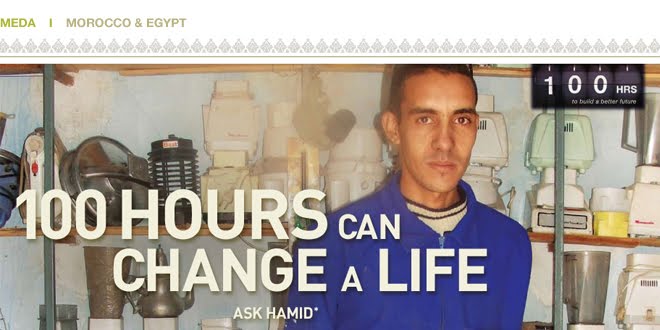 MEDA's YouthInvest project is making great progress in reaching out to unemployed youth in Morocco, reports project manager Jennifer Denomy, who is currently on a two-week field visit to Morocco.
MEDA's YouthInvest project is making great progress in reaching out to unemployed youth in Morocco, reports project manager Jennifer Denomy, who is currently on a two-week field visit to Morocco.For instance, youth are being encouraged to begin saving for their future. To date, 587 youth savings accounts have been opened with MEDA's partner financial institutions.
And MEDA is reaching out to many more youth with its 100 Hours to Success training program as it continues to scale up. Currently, 1,309 youth are enrolled in training and 554 have completed courses.
Partner financial institutions are piloting youth loan projects. Interested clients participate in eight hours of training, then apply for a loan to start or build a small business for themselves. The average loan size is 8,000 Moroccan Dirhams, or about $900.
MEDA is getting the word out about YouthInvest through awareness-raising sessions in high schools, youth centers and community centers to attract young people to the training.
A current priority is to expand YouthInvest to Egypt, and MEDA is finalizing partnership agreements with local banking institutions and NGOs. Recent research, including focus groups with youth, parents and community leaders and partners, will ensure that the program is tailored to the particular needs of the Egyptian community.
Watch this space for reports from the field!




